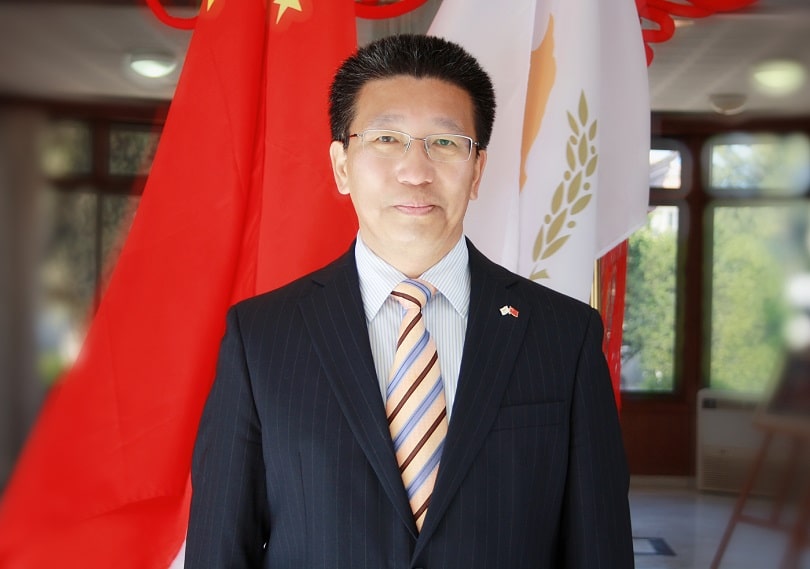By H.E. LIU Yantao, Ambassador of the People’s Republic of China to the Republic of Cyprus
Terrorism is the common enemy of humanity, posing a grave threat to international peace and security. As a victim of terrorism, China has always fought it in a law-based manner, including by concluding or joining international conventions and treaties, as well as amending and improving criminal laws.
On January 23, the State Council Information Office of China published a white paper, China’s Legal Framework and Measures for Counterterrorism, which elaborates on China’s counterterrorism legal system and practices. It mainly covers five parts: An Improving Legal Framework for Counterterrorism, Clear Provisions for the Determination and Punishment of Terrorist Activities, Standardised Exercise of Power in Fighting Terrorism, Protection of Human Rights in Counterterrorism Practices, and Effective Protection of People’s Safety and National Security. Three important points of this white paper deserve special attention.
First, China has attached great importance to the rule of law in counterterrorism. The white paper points out that China has gradually formed a counterterrorism legal framework based on the Constitution, with the Counterterrorism Law as the centerpiece and the criminal laws and National Security Law playing major roles, with other laws as supplements. The legal framework also covers administrative regulations, judicial interpretations, local regulations, and departmental and local government rules.
The Chinese law has clear provisions for the determination and punishment of terrorist activities. For instance, China’s Counterterrorism Law provides concrete and precise definitions of terrorism, terrorist activities and related concepts, which are consistent with the principles of international conventions to which China is a signatory as well as the practices of many other countries.
On such basis, in handling terrorist cases, the procedures have been regulated in accordance with law, and external oversight has been strengthened to ensure the standardised and orderly exercise of power.
Second, China has managed to strike a balance between fighting terrorism and protecting human rights. The white paper points out that China respects and protects human rights as an underlying principle, and gives equal weight to safeguarding the basic rights of citizens, preserving social order, and protecting the rights of victims and interested persons as well as suspects, defendants and convicts.
The white paper also details a series of measures to protect human rights in counterterrorism, including maintaining a safe environment and social order where human rights are guaranteed, protecting the rights of victims and interested persons, protecting personal freedom and dignity, safeguarding the right to defence, ensuring the rights to information and participation, protecting the right to legal relief, safeguarding the right to court proceedings in ethnic minority languages, and ensuring the legitimate rights and interests of convicts.
Third, China has made important contributions to global and regional security and stability. By combating domestic terrorist activities, strengthening border control, and stopping the cross-border movement of terrorists, China has effectively curbed the spillover of terrorism.
Importantly, China has supported the UN’s leading and coordinating role in international cooperation on counterterrorism, abided by the UN Charter and other well-recognised international laws, and backed the counterterrorism resolutions adopted by the UN Security Council. It has joined 12 global counterterrorism conventions and actively fulfilled its obligations in fighting terrorism.
Meanwhile, China has actively advocated regional counterterrorism cooperation, and played an important role in maintaining international and regional security and stability. In addition, China has carried out practical exchanges and cooperation on counterterrorism with dozens of countries.
It needs to be stressed that as different countries have different political systems, legal institutions, and cultural traditions, and are confronted with different forms and manifestations of terrorism, they are thus applying different legal practices in combating terrorism.
However, some people have often adopted double standards in the identification of and the fight against terrorism. They are used to interfering in others’ internal affairs, and infringing on others’ sovereignty under the pretext of upholding the rule of law and human rights. These actions have in fact severely hampered global efforts to fight terrorism.
China believes that in fighting terrorism the international community should support diverse forms of law-based actions. It firmly rejects double standards, and opposes the politicisation of related issues. Committed to the vision of building a community with a shared future for mankind, China is ready to work closely with other countries, including Cyprus, to push forward global governance on counterterrorism. On the basis of equality and respect, China will engage in extensive exchanges, cooperation, and mutual learning to facilitate the global efforts on counterterrorism.







Click here to change your cookie preferences